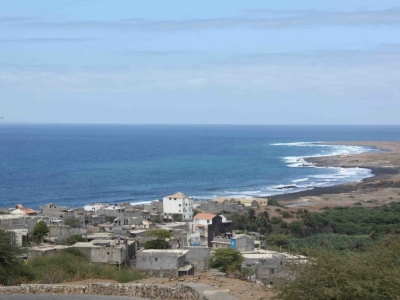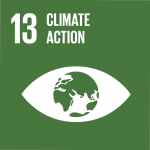A South-South exchange with Lusophone LDCs on National Adaptation Plans

How can countries make greater strides in their NAP process?
The acceleration of National Adaptation Plans (NAP) and the enhancement and implementation of Nationally Determined Contributions (NDC) are important for achieving an inclusive and resilient green recovery from COVID-19. To discuss ways to accelerate the NAP process and also use NAPs to enhance the implementation and revision of the NDCs, the GEF funded joint UNDP-UNEP National Adaptation Plan Global Support Programme (NAP-GSP) conducted a series of four webinars for Least Developed Countries (LDCs) throughout 2020. The virtual series convened LDCs in a South-South exchange.
The NAP-GSP partnered with Cap-Net to host an exchange between three Lusophone countries, Mozambique, Angola and Guinea Bissau to discuss the establishment of vertical/horizontal integration, decentralized planning mechanisms at different levels, accessing climate finance to further support NAP and NDC-related work. This was the first NAP-GSP webinar dedicated to creating a space for Lusophone LDCs to convene and share experiences and knowledge on NAPs and NDCs. The overarching objective was to help countries make greater strides in their NAP process soon, including the formulation of NAPs.
Mozambique’s goal for local adaptation plans
Mozambique has been greatly affected by an influx of extreme weather events, such as floods, drought and cyclones. In response, the country has taken several crosscutting measures to reinforce their Early Warning Systems, increase capacity to manage water resources and increase access and capacity for water collection, storage, treatment, and distribution, as well as improve the adaptative capacity of vulnerable communities.
Mr. Claudio Afonso, the National Director of Climate Change for Mozambique presented the country’s goal for all 153 Districts to have their own local adaptation plan and to integrate climate change mitigation at this level by 2025. Mozambique adopted a National Strategy for Adaptation and Mitigation of Climate Change in 2013 and these plans also align with the adaptation component in Mozambique’s NDC, which was approved in 2018. Mozambique is currently preparing the NAP, which would cover the period up to 2035.
Angola’s inclusive and multi-sector NDC
Angola submitted its first NDC in November 2015 as an outcome of the COP21. Angola’s NDC included components to strengthen capacity of small farmers, introduce sustainable land management practices, promote ecological villages, and establish agro-ecological zoning. Angola submitted an updated NDC in May 2021 that is more inclusive of different sectors and progressively more ambitious. The NDC components have a definite 5-year end goal, with an indicative 10-year goal. Mr. Giza Gasper Martin, the Director of the National Directorate for Environment in Angola explained that the country is also preparing a NAP but some activities for a multi-sectoral NAP process have already begun. There has been significant investment in collecting information towards the formulation of their adaptation planning.
Guinea Bissau’s adaptation component
Guinea Bissau is preparing a more robust, realistic, and inclusive updated NDC to be made available before the COP26 in Glasgow. The NDC revision is taking place in 2021, said Mr. João Lona Tchedná, the President of the National Meteorological Institute of Guinea Bissau and Permanent Representative of Guinea-Bissau to the World Meteorological Organization (WMO).
Guinea Bissau plans to include in the adaptation component of its NDCs priorities related to in food security, water resources, and coastal and forest resources. Overall, the country’s NDC’s adaptation component aims to presents a refined version of the vulnerability analysis and cost estimate of the impacts of climate change (“no action” and “with action” scenario) in the Guinea-Bissau economy, particularly in the agriculture sector. The NDC will also present the cost of adaptation strategies by 2030.
Lessons learned and outcomes
The countries acknowledged that NAP processes have been initiated but will require significant acceleration. They also discussed the need to further align their NAP process and their NDC, and to foster political will and further collaboration of senior staff and relevant government entities. The outcome of the discussion allowed for a shared understanding of how Lusophone countries’ NAPs can lay the groundwork for supporting their NDCs.
There was a consensus that having a central structure in charge of facilitating and coordinating agencies and actors is crucial. Partnerships were identified as necessary for establishing multi-stakeholder engagement processes from the beginning and having a clear view of capacity needs at the regional, national, and local levels is essential.
Participants attended the webinar from nine countries, Portugal, Brazil, Cabo Verde, Guinea-Bissau, Mozambique, Angola, Sao Tome and Príncipe, and Timor-Leste. A video recording of the webinar is available in the original language (Portuguese) and a summary report is available in English on the NAP-GSP website.
